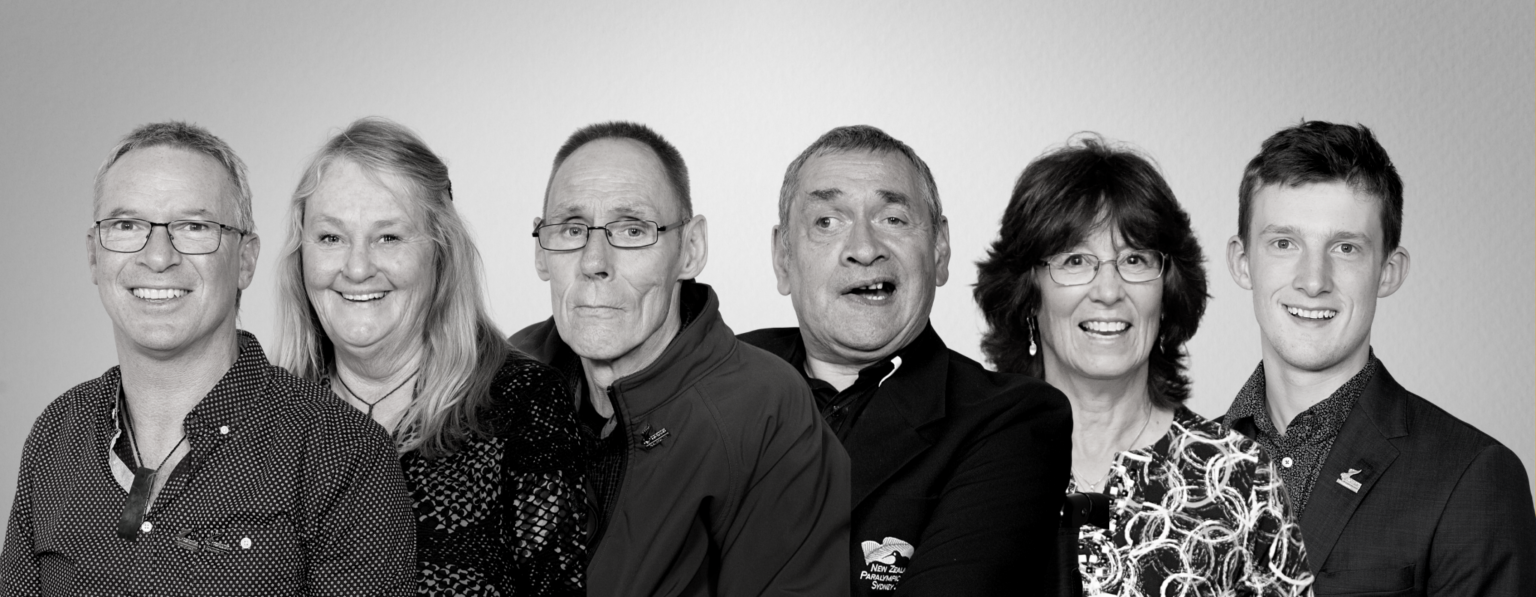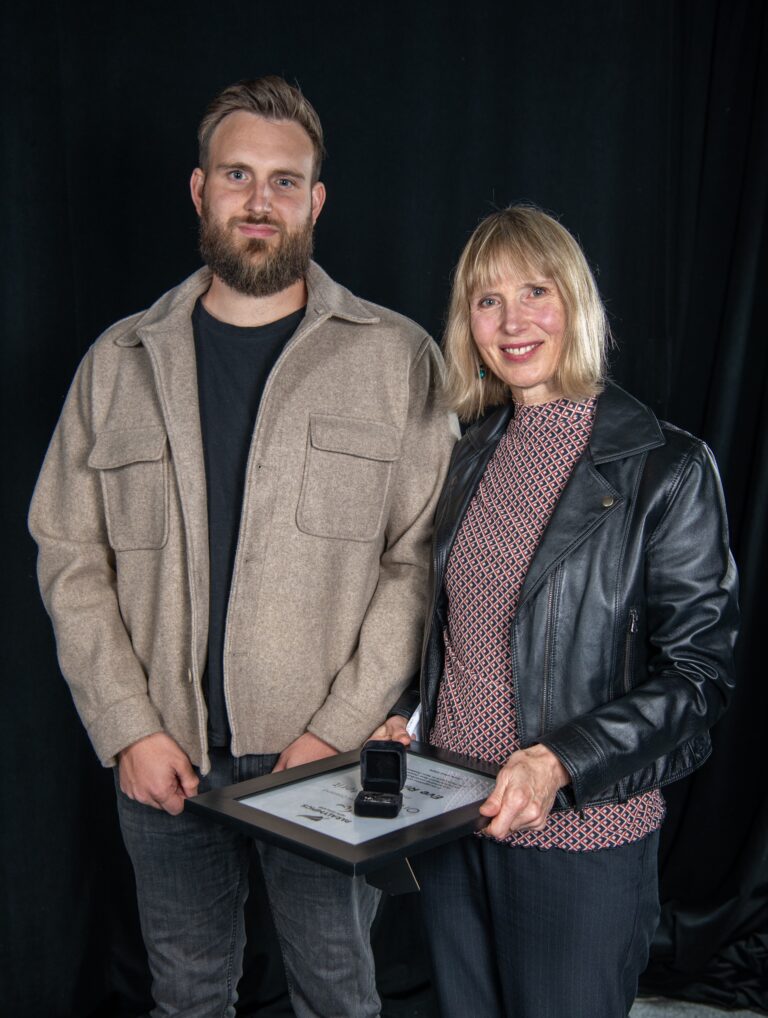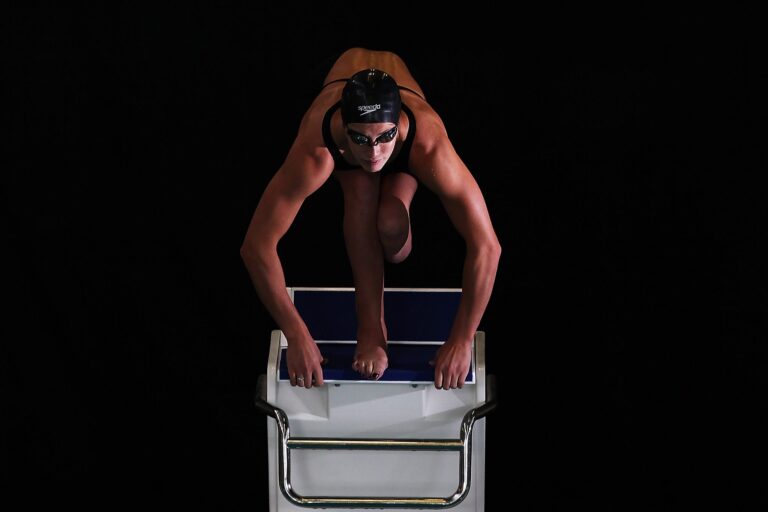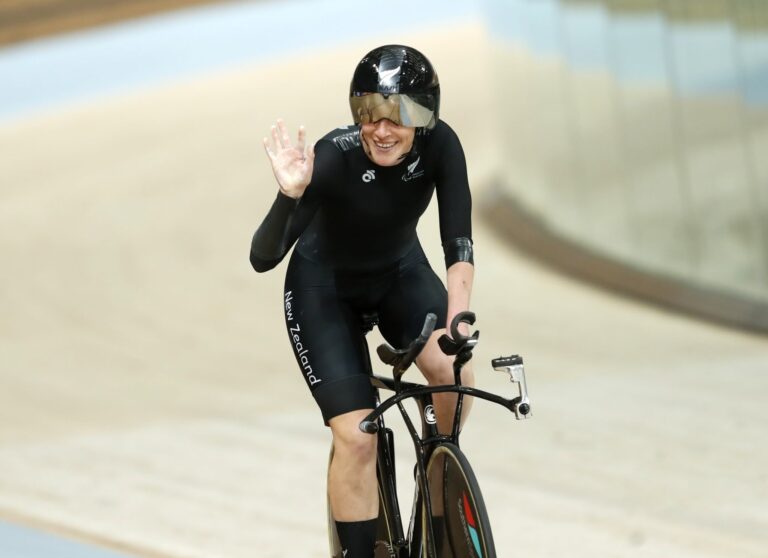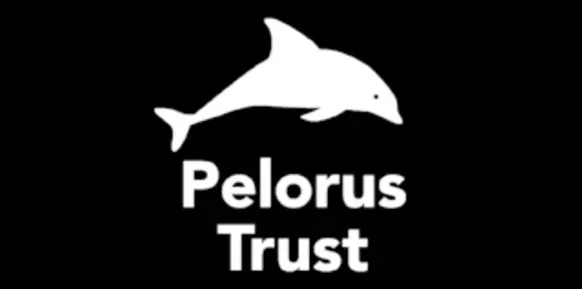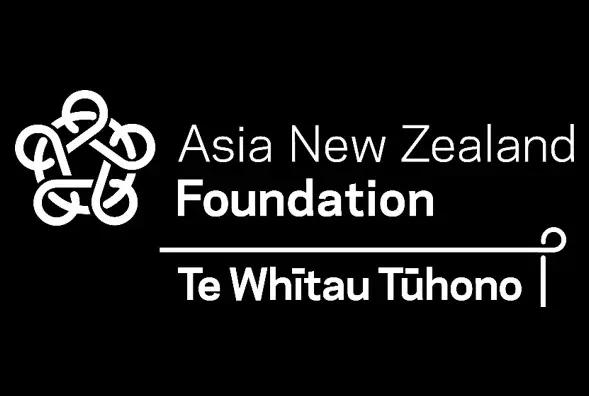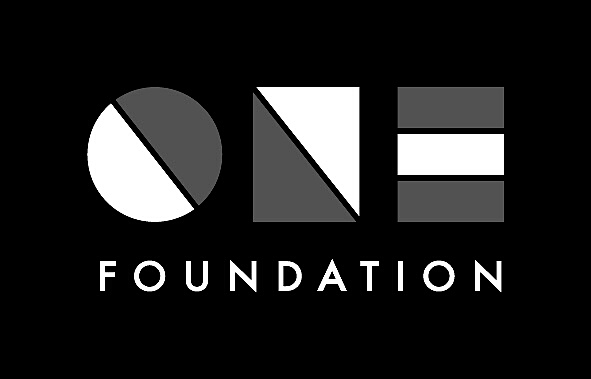The ParaFed Canterbury Sports Awards at Riccarton Park was the setting for an emotional ceremony on Saturday evening.
Seven Paralympians, who have represented New Zealand across a total of six Paralympic Games, received their official numbered pin, as well as a certificate signed by the International Paralympic Committee President Andrew Parsons. Some of our Paralympians were proudly represented by family or friends.
They were:
- Paralympian #99 Ben Lucas
- Paralympian #112 Geremy Tinker
- Paralympian #124 Mark Inglis
- Paralympian #129 Bill Oughton
- Paralympian #138 Gary Williams
- Paralympian #165 Jayne Parsons
- Paralympian #208 William Stedman
(The profiles of the Paralympians are included below.)
Presenting New Zealand’s Paralympians with numbered pins began in 2019. The Celebration Project, as it is known, was an opportunity to celebrate over fifty years of New Zealand Paralympic heritage. PNZ wanted to officially acknowledge the achievements of our 227 Paralympians, and protect this heritage for future generations. The official recognition positively influences community perceptions of disabled people and promotes diversity and inclusion.
Since 1968, New Zealand Paralympic Teams have represented our nation with dignity, pride and excellence. Our Paralympians have inspired Kiwis to think differently about disability through their incredible performances. With a staggering 232 medals won since Tel Aviv 1968, our Paralympians punch above their weight on the world stage.
The Celebration Project
The Paralympians are part of a group of 173 who have received their official numbered Paralympic pin and certificate. The official Paralympic number is bestowed only once a Paralympian has competed at their first Paralympic Games.
Paralympics New Zealand Chair Jana Rangooni presented the Paralympians or their family or friends with their pins.
“It is an honour to be part of this historic occasion. I’d like to thank ParaFed Canterbury for including the official acknowledgement of these seven amazing Paralympians in their Sports Awards tonight. They join 165 New Zealand Paralympians who have already received their official numbered pins. The Paralympians represent New Zealand Paralympic Teams from across the many decades that New Zealand has competed at the Paralympic Games. It’s a beautiful celebration of New Zealand’s cultural and sporting heritage.“
Paralympics New Zealand Chair Jana Rangooni presented the pins.
As well as his numbered pin, Paralympian #99 Ben Lucas received his PNZ Order of Merit pin. The PNZ Order of Merit recognises his outstanding service to PNZ and Paralympic Sport.
“This is an incredibly special moment for me. Para sport has the power to transform New Zealand in wonderful ways, and I’ve seen so much positive change over the past twenty years. It’s a privilege to be part of this movement recognising my fellow Paralympians, those who were pioneers in this space and those who have proudly carried it on. I’m so glad I’ve been able to contribute in the way that I have.“
As well as his numbered pin, Paralympian #99 Ben Lucas received his PNZ Order of Merit pin. The PNZ Order of Merit recognises his outstanding service to PNZ and Paralympic Sport.
“I’m stoked to receive this acknowledgement. There’s so much hard work that goes into competing at that level – it’s not just from me but from the whole team around me. This recognition isn’t just a personal tribute, it’s also a symbol of the growing significance of Para sport for New Zealand, and there are a lot of people who have worked hard to make that happen.“
Tokyo 2020 Paralympian #208 William Stedman received his pin at the Awards Function.
Further to the Paralympians who received their pin, the function acknowledged Paralympian #18 Keith McCormick and Paralympian #25 Brian McNicholl. Paralympian #35 Fred Creba’s son was presented with his father’s pin on Friday afternoon.
The ParaFed Canterbury Sports Awards has recognised Para athletes for over three decades. Four fabulous winners were awarded during the function.
A highlight of the evening was seeing the Hellers NZ’s Butcher Sportsperson of the Year won by Sophie Pascoe. This follows her spectacular success at the Tokyo 2020 Paralympic Games. Also presented were Southern Screenworks Ltd Junior Sportsperson of the Year to Gabriella Smith, the Mortgage Consulting Ltd Emerging Talent of the Year to Hamish Cleary and the Sub5 Spirit in Sport Award to László Walker. Paralympics New Zealand congratulates the winners for their outstanding achievements.
Paralympian profiles
Paralympian #99 Ben Lucas
In 1989 aged 24, a motorcycle crash left Ben paralysed. This led him to Para athletics to compete in wheelchair racing. During his 10-year sporting career, Ben represented New Zealand many times. He began at the 1994 Commonwealth Games, where he won a bronze medal in the wheelchair marathon. He was team captain and flagbearer at both the Atlanta 1996 Paralympic Games and in Sydney 2000. Ben also represented New Zealand at the 1999 World Wheelchair Games in Christchurch. There he won a gold medal in the wheelchair marathon. Ben retired from competitive racing in 2000 and has remained a key figure in Para sport since. He has held positions on the PNZ and ParaFed Canterbury Boards. He was Chef de Mission for the highly successful New Zealand Paralympic Team at the Rio 2016 Paralympics. In 2019 Ben was awarded PNZ Order of Merit recognising his outstanding service to PNZ and Paralympic Sport.
Paralympian #12 Geremy Tinker
Geremy broke his neck in an under-19 club rugby match in Christchurch. During his rehab at the Burwood Spinal Unit he got a visit that would introduce him to the next stage of his sporting life: Wheelchair rugby. Geremy was a long time member of Wheel Blacks teams. He competed in 4 Paralympic Games – Atlanta 1996, Sydney 2000, Athens 2004 and Beijing 2008. Geremy helped make history in Athens 2004 when they won a Paralympic gold medal against Canada. This was one of the best games of his long career. He pulled off two crucial turnovers that kept New Zealand in lead and ultimately gold medallists. Geremy was represented at the ceremony by his mum Cathy.
Paralympian #24 Mark Inglis
While pursuing a career as a professional mountaineer and a search and rescue mountaineer, Mark Inglis, together with climbing partner Phil Doole, was stuck in a snow cave on Aoraki/Mount Cook for 13 days due to an intense blizzard. As a result Mark had both legs amputated below the knee. Mark’s passion for the outdoors never left him and he became a successful Para alpine skier and Para cyclist. He first represented New Zealand at the Para Cycling World Championships in 1998. Then he made his Paralympic debut in Sydney 2000. Mark finished 12th in the road race and won the silver medal in the Kilo (1000m individual time trial). It was New Zealand’s first ever Paralympic medal in Para cycling. In 2006, Mark became the first ever double amputee to reach the summit of Mount Everest. In 2002 Mark was appointed an Officer of the New Zealand Order of Merit for services to persons with disabilities. Paralympian #99 Ben Lucas received Mark’s pin on his behalf.
Paralympian #29 Bill Oughton
After a car accident left Bill a tetraplegic, he took up Wheelchair rugby. He became a member of the highly successful Wheel Blacks team. Bill won bronze and gold with the team over two Paralympic Games; Sydney 2000 and Athens 2004. The team became Paralympic Champions in Athens 2004, winning gold after an epic final against Canada.
Paralympian #138 Gary Williams
Gary Williams was born in Tokomaru Bay with cerebral palsy. Being an isolated community with no support services, Gary learnt to be self-reliant. He taught himself to write with his feet. After playing competitive open-grade indoor bowls, he was introduced to Boccia in the 1990s. Soon Gary was competing at international level as New Zealand’s first ever foot player and winning international events. Gary made his Paralympic debut at Sydney 2000 competing in the Mixed Team BC1-BC2, and Mixed Individual BC1 events. The team of 4 New Zealand Boccia players had two convincing wins in the Pool stages against Argentina and Norway. This took them through to the finals. The team made it all the way to the bronze medal match against Portugal. They just missed out on a podium finish placing 4th.
After retiring from sport, Gary turned his efforts to advocating for disabled people and especially for disabled Maori. Gary was a leader of the New Zealand delegation that negotiated the United Nations Convention on the Rights of Persons with Disabilities. In 2012, Gary was recognized as a member of the New Zealand Order of Merit for his services to disability support.
Paralympian #165 Jayne Parsons
After losing her sight in her twenties, Jayne took up tandem cycling so she could join in with her husband and daughter in their daily rides to and from school. Those school rides quickly became 25-50km rides up and down hills and then on to Para cycling. Jayne made her Paralympic debut at the Beijing 2008 Paralympic Games competing in 4 road and track tandem cycling events. Her medal success came on the road competing in the 25km road time trial with partner and sighted pilot rider Annaliisa Farrell. Together they claimed bronze, New Zealand’s first ever Paralympic Tandem Cycling medal. During her Para cycling career, Jayne won 5 Para Cycling Track World Championships. Jayne now lives in Western Australia with her family. Jayne’s sighted pilot Paralympian #161 Annaliisa Farrell accepted Jayne’s pin on her behalf.
Paralympian #208 William Stedman
William lives with cerebral palsy and was inspired to become a Para athlete after a family holiday in London at the time of the Paralympic Games where William saw people with similar disabilities to himself running in a stadium filled with thousands of people. Back home in NZ, William joined an athletics club and started training in middle to long distance. At a Paralympics New Zealand Para Athletics Development camp, he was encouraged to try long jump and, with it, sprinting instead of longer distance. At the start of 2015 William competed at his first international event, the IPC Grand Prix in Queensland and then went on to make his Paralympic debut in Rio 2016. As one of the youngest members of the NZ Paralympic Team, William competed in the Men’s T36 400m and 800m winning a bronze medal in both. At the Tokyo 2020 Paralympic Games William added to his medal tally with a silver medal in the Men’s Long Jump T36 and bronze in the Men’s 400m T36. William also held the prestigious role of Hāpai Kara for the NZ Paralympic Team.
Paralympics New Zealand also acknowledges two Paralympians who were unable to be present but who have strong links to the Canterbury region.
Paralympian #18 Keith McCormick
As the result of a diving accident when he was 22, Keith became a wheelchair user. Two years later Keith represented New Zealand in both Para athletics and Para swimming at the Heidelberg 1972 Paralympic Games. At the 1974 Disabled Commonwealth Games in Dunedin, Keith won a silver medal in the pentathlon and a bronze in the shot put. Proving his versatility, he won another silver in the 25m Backstroke. Keith was a board member of Paralympics New Zealand in its early days and dedicated 25 years to the Board of ParaFed Canterbury, being instrumental in the organisation becoming the high quality service provider it is today. In 2001, Keith received the Member of the New Zealand Order of Merit and was awarded the PNZ Order of Merit for his outstanding contribution to disability and Para sport. Keith has passed away but is survived by his sister Sue who lives in Adelaide, Australia.
Paralympian #25 Brian McNicholl
Brian was diagnosed with polio at 11 months of age. He began his Paralympic journey that to the encouragement of Paralympian #4 Graeme Condon. Brian went onto make his Paralympic debut at the Toronto 1976 Paralympic Games in Canada, competing in Para athletics and Para weightlifting, winning a silver medal in the Men’s Slalom 4 event. In 1978 Brian moved to live in Australia and went on to represent Australia at a further 5 Paralympic Games, winning a total of 2 bronze medals in Arnhem 1980 and Seoul 1988; 1 silver in Atlanta 1996 and 1 gold in Barcelona 1992 in Para weightlifting and Para powerlifting. He was a 3 x World Champion, setting a world record of 230kg at the 1994 World Championships held in Melbourne. Brian was awarded the Order of Australia medal (OAM) for his Gold Medal performance at the Barcelona 1992 Paralympic Games and his service to sport and the community. Brian lives in Melbourne, Australia.
In addition, Mark Creba accepted Fred Creba’s pin and certificate on behalf of his father on Friday afternoon as along with his family he was unfortunately unable to attend the Sports Awards.
Paralympian #23 Fred Creba
Fred Creba broke his back in 1969 while clearing broken branches from a telephone line, resulting in him becoming a paraplegic at 24, paralysed from the waist down. Prior to his accident Fred had been a successful local runner and afterwards he took his very competitive attitude and approach into his new Para sports. At the 1974 Commonwealth Games in Christchurch Fred made the podium, with a silver medal in the bench press event. He went on to break his own Para weightlifting world record in 1975. In that same year, his sporting performances earned him the title South Canterbury Sportsperson of the Year and was the first Para athlete to do so. Fred made his Paralympic debut in Toronto 1976 Paralympic Games. It was a success as he won the bronze medal in the Men’s Light-Heavyweight. At the Toronto 1976 Paralympic Games, Fred also competed in Para athletics, in the Men’s 400m 3, the discus, javelin and shot put all in the class 3. Fred passed away in October 2013.

